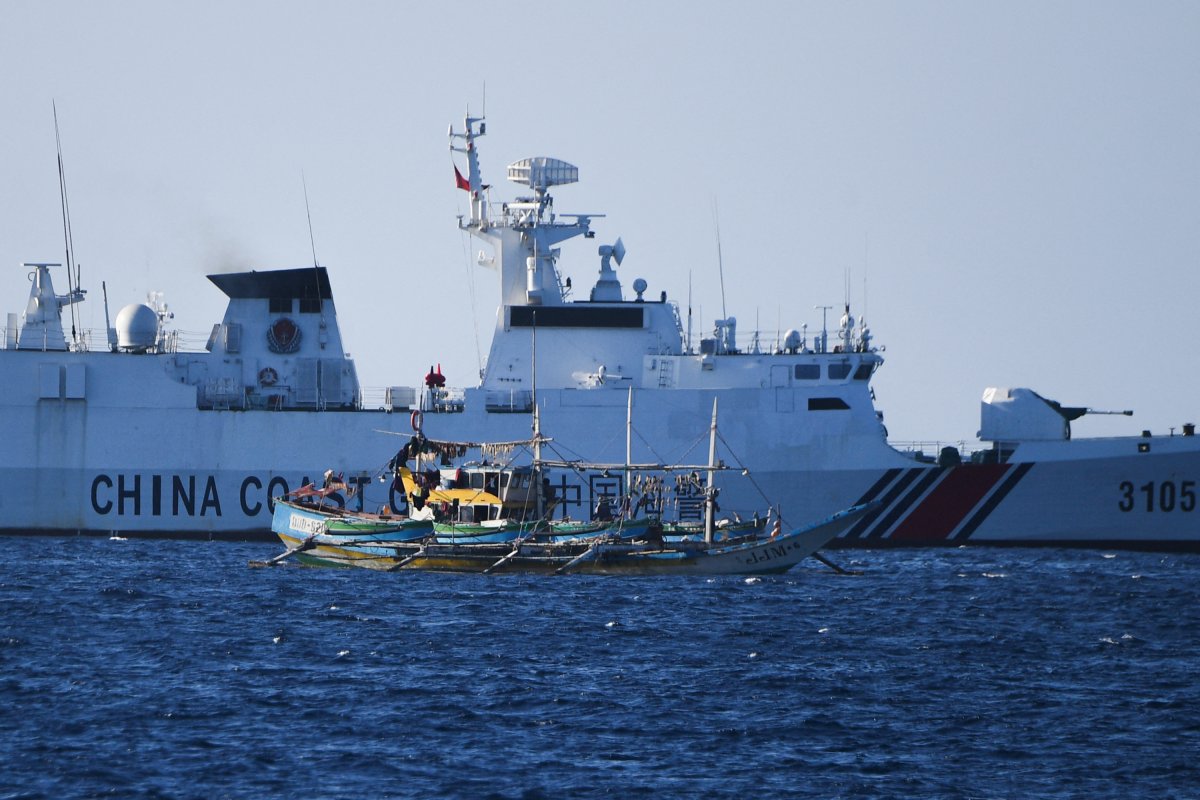China Accused of Poisoning Waters With Cyanide Fishing
Published Feb 19, 2024
By Micah McCartney
China News Reporter
The Philippines is accusing Chinese fishermen of poisoning the ecosystem of the bountiful, but contested, fishing areas in the South China Sea.
"These Chinese fishermen use cyanide," Nazario Briguera, a spokesperson for the Southeast Asian country's fisheries bureau, said on Saturday, according to local media.
The Philippines and China have been at loggerheads over the Scarborough Shoal since a territorial spat in 2012 escalated to the point where China seized de facto control over the area. The shoal is situated within the Philippines' 200 nautical-mile exclusive economic zone (EEZ), which according to international maritime law grants it the sole right to the natural resources found within.
Briguera claimed Chinese fishing crews were deploying the toxic chemical to intentionally damage the shoal and discourage Philippine fishermen from operating in the area, which China claims as its own, as it does with most of the South China Sea.
 A Chinese coast guard ship sailing past a Philippine fishing boat near the China-controlled Scarborough Shoal on February 15, 2024. The Philippines is accusing Chinese fishermen of poisoning fishing areas.TED ALJIBE/AFP VIA GETTY IMAGES
A Chinese coast guard ship sailing past a Philippine fishing boat near the China-controlled Scarborough Shoal on February 15, 2024. The Philippines is accusing Chinese fishermen of poisoning fishing areas.TED ALJIBE/AFP VIA GETTY IMAGESThis is a "clear case of illegal, unreported and undocumented fishing," he said.
By clicking on SIGN ME UP, you agree to Newsweek's Terms of Use & Privacy Policy. You may unsubscribe at any time.
China operates the largest commercial fishing fleet in the world. These ships have been accused of plundering other countries' fish stocks, and China accounts for over half of the world's environmentally devastating bottom-trawling fishing fleets.
He estimated the alleged cyanide use may have already inflicted more than $17.8 million in damage, but added that the agency hasn't begun a formal investigation.
In an interview with the Philippines' GMA News over the weekend, Philippine spokesperson Jay Tarriela said: "We do not have any scientific study or any evidence that would suggest that the cyanide fishing at Bajo de Masinloc can be attributed to the Chinese or even the Vietnamese fishermen."
Fishermen from China and Vietnam, like their Philippine counterparts, have long fished the shoal's resource-rich waters. However, China frequently expels Filipinos it finds there, prompting Manila to recently announce it was stepping up coast guard patrols to support its nationals.
The livelihoods of an estimated 385,000 people depend on their hauls in waters around the country's EEZ, according to government data from Manila.
Newsweek reached out to the Bureau of Fisheries and Aquatic Resources and the Chinese foreign ministry with written requests for comment.
Developed as a means of incapacitating live fish to collect for aquariums, cyanide is now frequently used—including by Philippine fisherfolk—to capture seafood.
"Cyanide fishing may not be as rampant as in the 1970s and 1980s, it is still being done in the Philippines," the Manila Bulletin cited fisheries expert Alan White as saying in an article published last year.
In September, the Philippines announced it would go forward with a lawsuit over "innumerable and immeasurable damage" allegedly wrought by Chinese fishermen harvesting coral within the Philippine EEZ.
China has countered with its own accusations of environmental malfeasance.
Chinese state-backed media outlet the Global Times ran an article last month accusing the Philippines of damaging the environment around another South China Sea feature, the Spratly Islands' Second Thomas Shoal, with the continued presence of a grounded 80-year-old warship that Manila uses to house marines there.
A quarter century's worth of toxic metal and paint corrosion coupled with fossil fuel use and waste from those stationed there are causing "irreversible and sustained damage to the surrounding marine life," the outlet cited Chinese marine strategy expert Yang Xiao as saying.
No comments:
Post a Comment